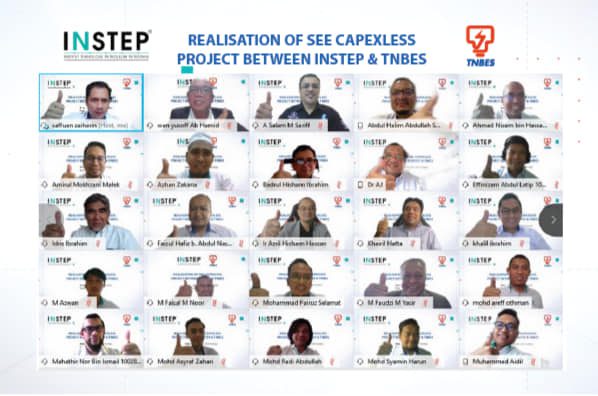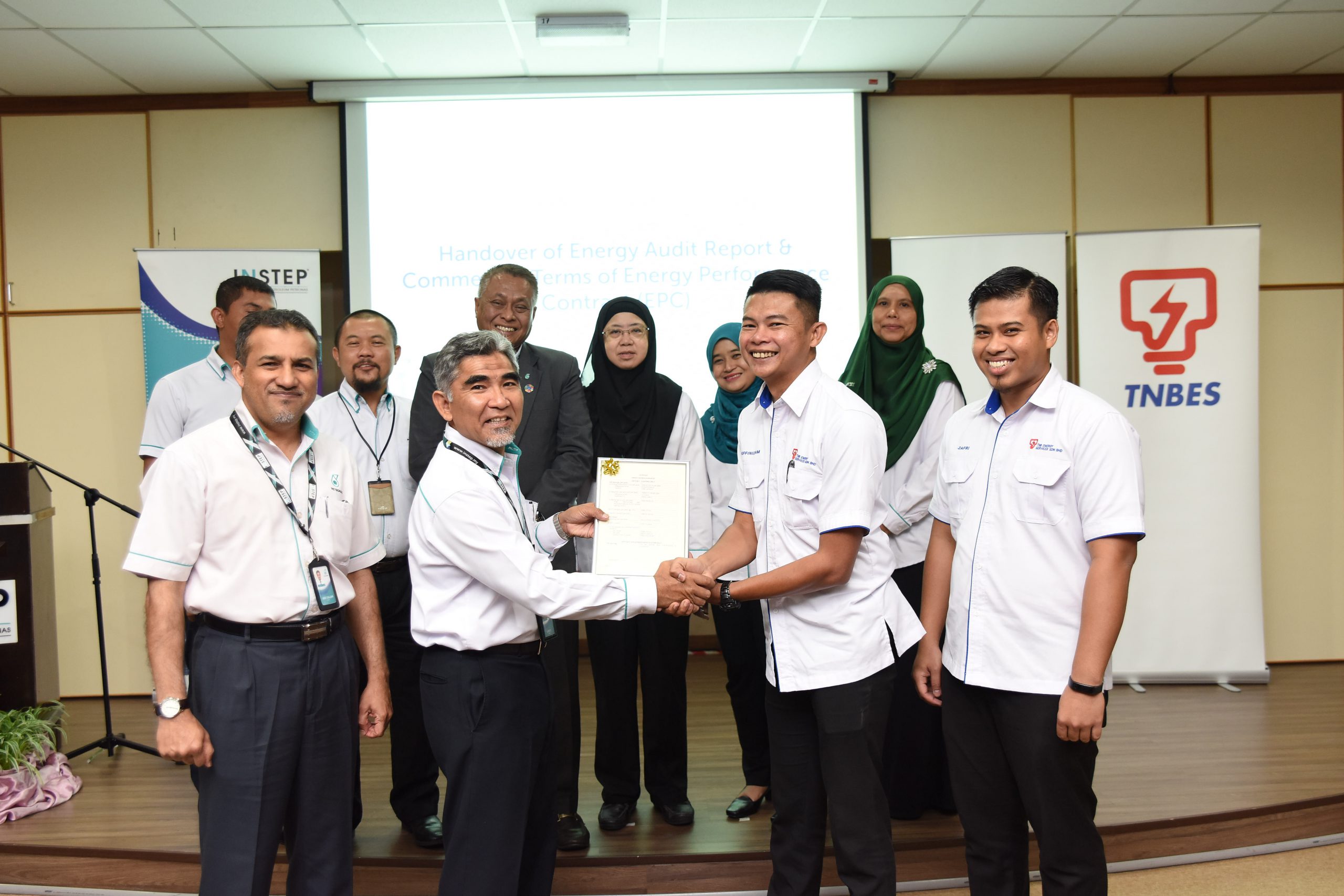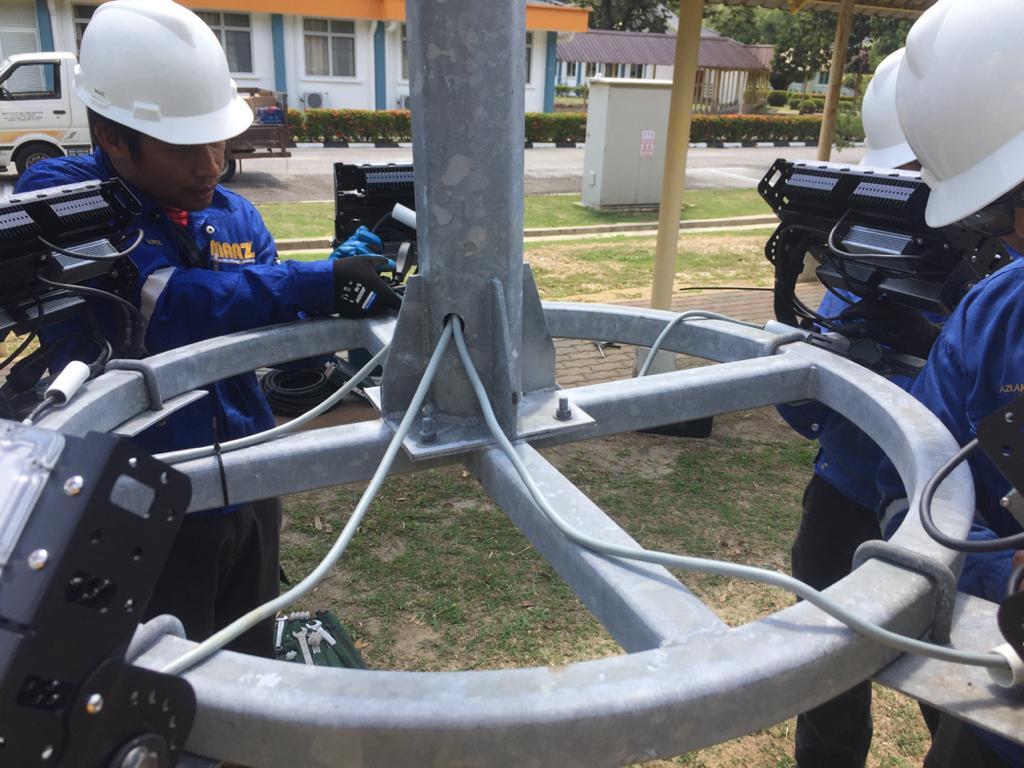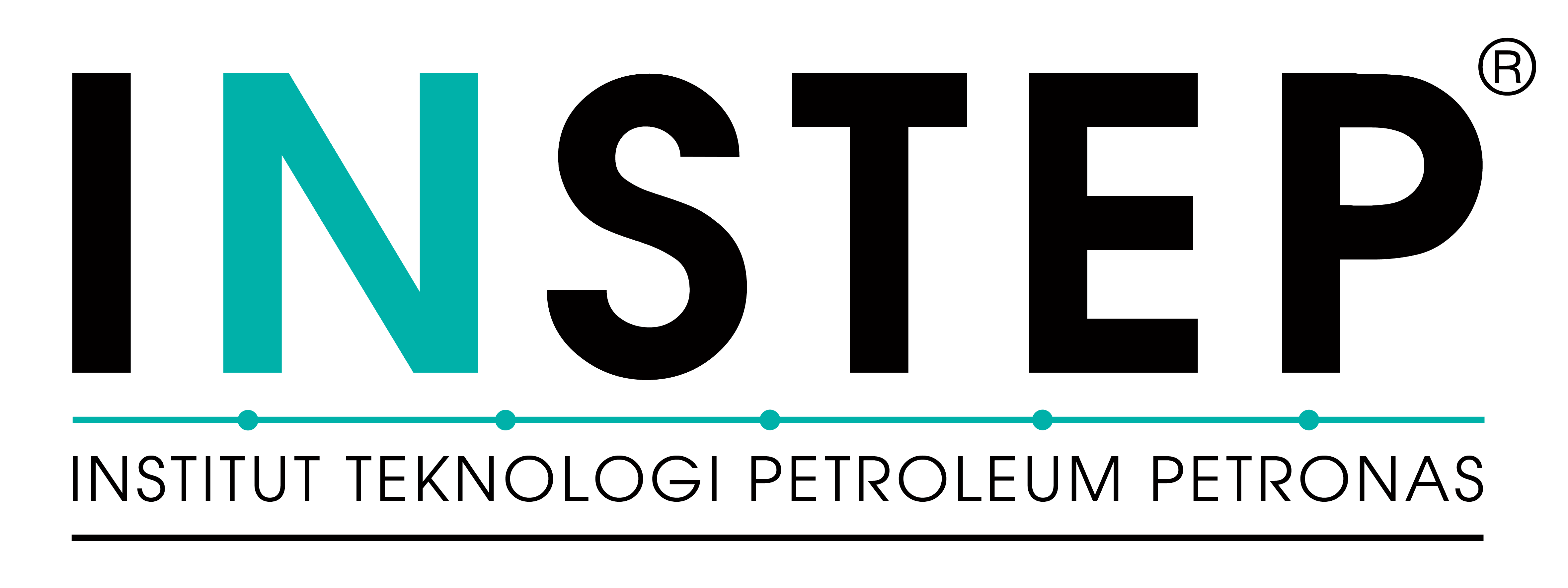
Representatives from INSTEP, Group Procurement, Group Technical Services, and TNBES gathered together virtually to celebrate this major milestone achieved in SEE CAPEXLESS project.
Moving forward with a stronger commitment to sustainability, Institut Teknologi Petroleum PETRONAS (INSTEP) and TNB Energy Services Sdn Bhd (TNBES) celebrated the official project completion and realisation of Smart Energy Efficiency (SEE) in line with achieving National Agenda overall emission reduction target, while catalysing PETRONAS Sustainability Development Agenda.
This business collaboration effort started from the initiative under Project Delivery and Technology (PD&T) MAGELLAN Project with the main objectives to reduce energy consumption and costs, as well as to contribute to reducing millions tonnes of carbon footprint in order to support National Agenda on climate change.
One of the focus areas is CAPEXLESS High Efficiency Equipment Upgrade. In close collaboration with Group Procurement (GP) and Group Technical Services (GTS), INSTEP is honoured to be chosen as the first pilot OPU in PETRONAS and also in the oil & gas industry for the SEE CAPEXLESS implementation.
“This initiative is in line with INSTEP’s commitment to PETRONAS Sustainability Development Agenda in safeguarding the environment, which features value creation and generates positive impact to our society,” reiterated INSTEP Chief Executive Officer, Idris Ibrahim on INSTEP’s commitment to be a sustainability corroborator in transitioning into green agenda and sustainability space.

The handover of energy audit report which was taken place in Nov 2019, that oversaw the official operationalisation of SEE CAPEXLESS project between INSTEP and TNBES.
Following the Detailed Energy Efficiency Audit at INSTEP in Nov 2019, INSTEP has tapped into TNBES solutions by retrofitting light emitting diode (LED) lighting and high mast lighting in Non-Process Area such as administration, office buildings and street lighting at INSTEP. This collaboration enables INSTEP to save approximately 407,880 kWH per year of energy consumption, thereby reducing carbon dioxide emissions by 283 tonnes.
“This collaboration is seen as another significant collaboration between GLCs to boost efforts towards Energy Efficiency and accelerate the growth of Green Energy in Malaysia,” said TNBES Managing Director, Dr. Ir. Ahmad Jaafar Abd Hamid.
Apart from this, INSTEP also previously embarked on food composting, which is a reflection of “from food waste to resources”, and estimated to compost around 36.5 tonnes of food waste annually, contributing to greenhouse gases reduction that is equivalent to what 466 trees can absorb annually. INSTEP will continuously play its active role as the sustainability corroborator in creating sustainable values for all.

All the conventional lightings at 76 INSTEP buildings were replaced with LED lighting and high mast lighting, creating savings of approximately 407,880 kWH per year of energy consumption, thereby reducing carbon dioxide emissions by 283 tonnes.

Representatives from INSTEP, Group Procurement, Group Technical Services, and TNBES gathered together virtually to celebrate this major milestone achieved in SEE CAPEXLESS project.
Moving forward with a stronger commitment to sustainability, Institut Teknologi Petroleum PETRONAS (INSTEP) and TNB Energy Services Sdn Bhd (TNBES) celebrated the official project completion and realisation of Smart Energy Efficiency (SEE) in line with achieving National Agenda overall emission reduction target, while catalysing PETRONAS Sustainability Development Agenda.
This business collaboration effort started from the initiative under Project Delivery and Technology (PD&T) MAGELLAN Project with the main objectives to reduce energy consumption and costs, as well as to contribute to reducing millions tonnes of carbon footprint in order to support National Agenda on climate change.
One of the focus areas is CAPEXLESS High Efficiency Equipment Upgrade. In close collaboration with Group Procurement (GP) and Group Technical Services (GTS), INSTEP is honoured to be chosen as the first pilot OPU in PETRONAS and also in the oil & gas industry for the SEE CAPEXLESS implementation.
“This initiative is in line with INSTEP’s commitment to PETRONAS Sustainability Development Agenda in safeguarding the environment, which features value creation and generates positive impact to our society,” reiterated INSTEP Chief Executive Officer, Idris Ibrahim on INSTEP’s commitment to be a sustainability corroborator in transitioning into green agenda and sustainability space.

The handover of energy audit report which was taken place in Nov 2019, that oversaw the official operationalisation of SEE CAPEXLESS project between INSTEP and TNBES.
Following the Detailed Energy Efficiency Audit at INSTEP in Nov 2019, INSTEP has tapped into TNBES solutions by retrofitting light emitting diode (LED) lighting and high mast lighting in Non-Process Area such as administration, office buildings and street lighting at INSTEP. This collaboration enables INSTEP to save approximately 407,880 kWH per year of energy consumption, thereby reducing carbon dioxide emissions by 283 tonnes.
“This collaboration is seen as another significant collaboration between GLCs to boost efforts towards Energy Efficiency and accelerate the growth of Green Energy in Malaysia,” said TNBES Managing Director, Dr. Ir. Ahmad Jaafar Abd Hamid.
Apart from this, INSTEP also previously embarked on food composting, which is a reflection of “from food waste to resources”, and estimated to compost around 36.5 tonnes of food waste annually, contributing to greenhouse gases reduction that is equivalent to what 466 trees can absorb annually. INSTEP will continuously play its active role as the sustainability corroborator in creating sustainable values for all.

All the conventional lightings at 76 INSTEP buildings were replaced with LED lighting and high mast lighting, creating savings of approximately 407,880 kWH per year of energy consumption, thereby reducing carbon dioxide emissions by 283 tonnes.


